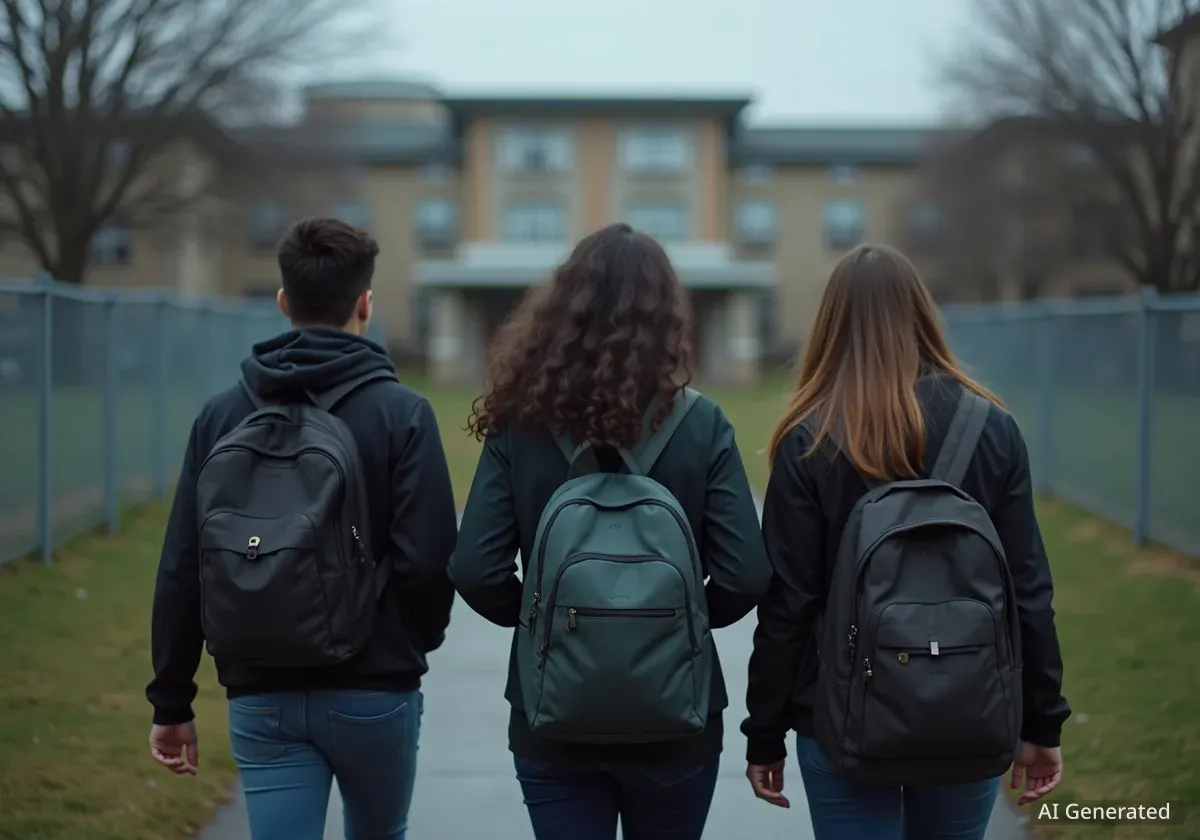A federal proposal to cut $1.5 billion from TRiO programs has left the future of the Upward Bound initiative in Baton Rouge uncertain. The funding freeze has already halted services for local high school students who rely on the program for college preparation, affecting institutions like Woodlawn High School directly.
The Upward Bound program, a key component of the federal TRiO initiative for over six decades, provides academic support and college readiness resources, particularly for students from low-income backgrounds. Now, local program directors and students are facing a future without these essential services.
Key Takeaways
- A proposed $1.5 billion cut to federal TRiO programs has frozen funding for the Upward Bound initiative in Baton Rouge.
- Woodlawn High School's Upward Bound program is losing its funding, immediately impacting student access to services.
- Students and program directors express concern over the loss of college and career preparation opportunities.
- The administration's budget report described TRiO programs as outdated, suggesting colleges should manage their own outreach.
Federal Budget Proposal Halts Local College Prep Program
A proposal from the Trump administration to reduce funding for TRiO programs by $1.5 billion has placed significant strain on local educational initiatives. In Baton Rouge, the effects are being felt immediately as the Upward Bound program has not received its necessary funding, effectively pausing all its operations.
Kent Battiste, the program director in Baton Rouge, confirmed the difficult situation. The lack of funds means that the services students depend on for academic advancement cannot be offered. "We haven't received our funding, so I can't offer any services," Battiste stated, highlighting the direct impact of the federal-level decision on local students.
One of the schools directly affected is Woodlawn High School, which will no longer have access to the program's resources. This leaves students who were actively participating in a state of uncertainty about their academic futures.
What is TRiO?
TRiO is a set of federal outreach and student services programs designed to identify and provide services for individuals from disadvantaged backgrounds. These programs, which have been in operation for over 60 years, aim to support students from low-income families, first-generation college students, and individuals with disabilities as they progress from middle school to post-baccalaureate programs.
The Role of Upward Bound in Student Success
For decades, Upward Bound has served as a critical resource for high school students seeking to attend college. The program offers a wide range of services designed to bridge the gap between high school and higher education, providing academic instruction, tutoring, and counseling.
Battiste described the program's core mission as focusing on practical preparation. "College and career preparation. We take the students to academic institutions of higher learning just to make sure they experience the different backgrounds and fields that are available," he explained. This hands-on approach helps students envision and plan for a future in higher education.
Services often include intensive summer programs, ACT and SAT preparation courses, and academic guidance throughout the school year. The goal is to equip students with the skills and confidence needed to succeed in a competitive academic environment.
A Legacy of Opportunity
The Upward Bound program was the first of the federal TRiO programs to be established. Since its inception as part of the Economic Opportunity Act of 1964, it has helped millions of students across the United States achieve their goal of attending college.
A Student's Perspective on the Potential Loss
The suspension of the Upward Bound program is not an abstract policy issue for students like Breyanty Johnson, an 11th grader at Woodlawn High School. For her, the program has been a transformative experience that provided opportunities she might not have had otherwise.
Johnson detailed the benefits she received, which went beyond typical classroom learning. "I've taken summer classes over six weeks of summer, ACT prep and I've gotten a head start in subjects that I'll be doing the grade after," she said. These experiences have given her a significant academic advantage.
"If this program is taken away, that means a lot of students will not get the opportunities that we did, and for me, I think that means a low success rate, especially in low-income students."
Her statement underscores a deep concern that the loss of Upward Bound will disproportionately harm students from low-income backgrounds who rely on its support systems. The program's absence could create a significant barrier to higher education for an entire cohort of students in the community.
Administration Justifies Cuts Amid Criticism
The administration's budget report provided a rationale for the proposed cuts, framing the TRiO programs in a critical light. The report referred to the initiative as a "relic of the past" and an example of "Woke Ideology."
The official recommendation suggests that outreach to K-12 students should be managed directly by colleges and universities, rather than through federally funded programs like Upward Bound. This perspective shifts the responsibility for pre-college preparation from the federal government to individual higher education institutions.
However, this view contrasts sharply with the experiences of students like Johnson and program directors like Battiste. They argue that specialized, federally supported programs are essential for reaching students who might otherwise be overlooked by traditional university outreach efforts. The potential elimination of Upward Bound in Baton Rouge highlights the ongoing national debate over the role of federal funding in ensuring equitable access to education.





